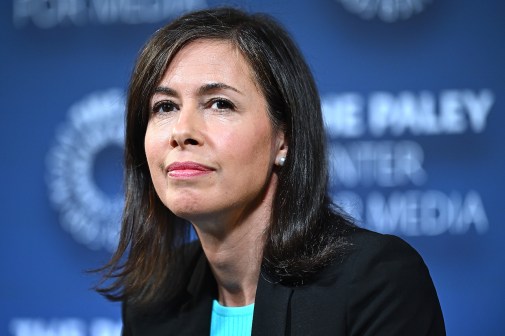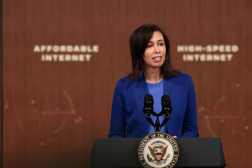State AGs show support for FCC in robocall crackdown

Fifty-one state attorneys general this week signed a letter urging the Federal Communications Commission to move forward with proposals aimed at reducing the number of illegal robocalls that reach American consumers.
The letter, a response to the FCC’s recent request for comment on its proposals to “take decisive action to stem the tide of foreign-originated illegal robocalls,” provides strong support for the commission’s measures. The FCC’s proposed changes would chiefly consist of requiring international gateway providers to implement more stringent caller authentication measures and robocall mitigation programs.
The attorneys general wrote in their letter that robocalls are a “top source of consumer complaints” that cost the country $13.5 billion each year, a figure that derives from harm to scammed consumers and increased costs for call carriers.
“In 2020, American consumers, including seniors, persons with disabilities, and other vulnerable populations, were bilked out of $522 million via fraud perpetrated over the phone and/or through text messages,” the letter read. “In most cases, the perpetrators of this fraud are foreign actors gaining access to the U.S. phone network through international gateway providers.”
Robocalls commonly involve foreign call centers spoofing American phone numbers, and while the FCC last June implemented a new requirement that the largest voice service providers use new call authentication standards, many smaller providers — those with 100,000 or fewer subscriber lines — were granted a deadline extension until June 30, 2023.
The attorneys general said they believe this decision “insulated and enabled” a small group of voice service providers that are now fielding a large proportion of robocall traffic. The FCC had been considering moving the deadline sooner for smaller providers, the officials wrote that they support making that date “as soon as possible.”
“The time has come to start cutting the strings that form the nets that these illegal robocallers cast over the public,” their letter read.
The gateway providers would be required to implement a form of call authentication known by the acronym STIR/SHAKEN, a suite of protocols and procedures that the FCC describes as “a common digital language” used by phone networks that adds additional checks for authenticity and builds a “chain of trust,” thereby weeding out scammers.
While not a “silver bullet,” FCC Chair Jessica Rosenworcel said during last June’s announcement, the new authentication standards will “turbo-charge many of the tools we use in our fight against robocalls.”
The attorneys general also supported FCC proposals to require gateway providers to implement robocall mitigation programs, including a 24-hour requirement for call traceback reporting, mandatory call blocking functionality and new requirements related to dealing with customers and foreign providers.
“Because gateway providers are not sufficiently mitigating illegal traffic, tough rules are necessary,” they wrote.






